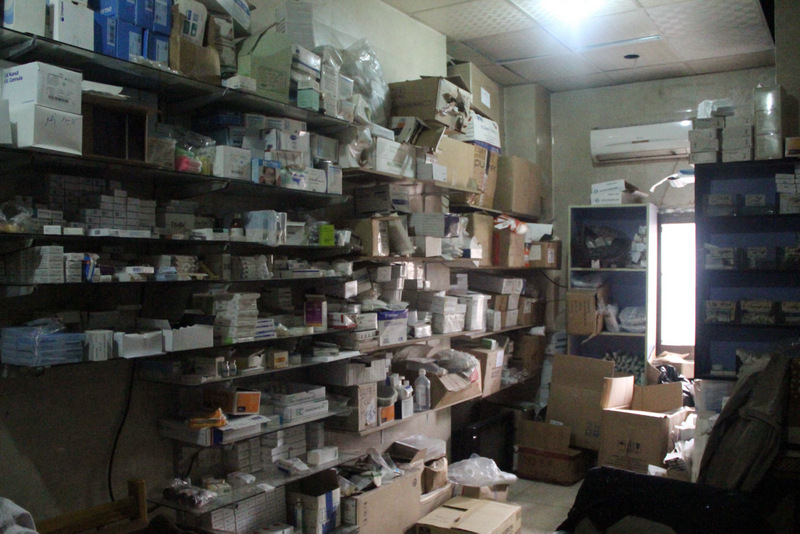Patients potentially exposed to chemical agents arriving in Syrian hospitals is worrying MdM.

Since Monday 21st April, one of the Syrian hospitals supported by MdM in Idlib near the Syrian-Turkish border has received nine patients presenting symptoms which could be a result of exposure to chlorine gas. According to a Syrian medical organization, which manages the hospital, which is an MdM partner, the patients presented with acute respiratory diseases.
They all come from a village just South of Idlib. One of the patients, a six-year-old child, arrived dead at the hospital while a young woman, suffering from acute respiratory distress syndrome, had to be intubated and fell into a coma. Acute respiratory distress syndrome is one of the short-term complications related to the inhalation of chlorine vapour.
For weeks, several of our medical partners in North Syria have been sharing with MdM their worries regarding possible chlorine attacks. They have been preparing their staff for such a possibility and asked their international partners to provide them with chemical protection.
MdM is in regular contact with its Syrian partners in order to assess the situation on the ground and – if appropriate – to provide adapted support. In September 2013, MdM had made available to its Syrian partners nearly 100,000 doses of atropine, an antidote for nerve gas poisoning.
Moreover, in the past weeks Aleppo has been the renewed target of intensive bombings. Between 7 and 12 April, three medical structures managed by one of MdM’s Syrian partners have been damaged during airstrikes. “Two floors of our surgery hospital have been turned to ashes”, explains one of the doctors of the Syrian medical organization.
From the beginning of the conflict, MdM has been calling on all the parties to the conflict to consider hospitals and all healthcare facilities as sanctuaries.